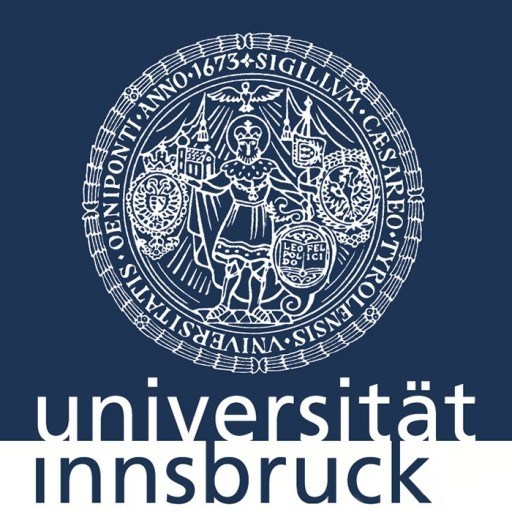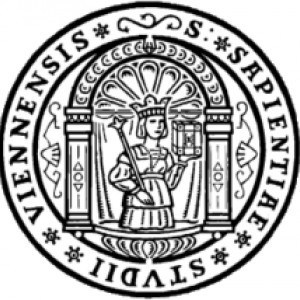Photos of university / #uniinnsbruck
The Bachelor's degree programme in Biology at the University of Innsbruck offers students a comprehensive and in-depth education in the fundamental principles and diverse aspects of biological sciences. This programme is designed to provide students with a solid foundation in various fields such as molecular biology, genetics, ecology, physiology, and evolution, enabling them to understand the complexity and interconnectedness of living organisms and their environments. Throughout the course, students will engage in both theoretical instruction and practical laboratory work, fostering essential skills in scientific research, data analysis, and critical thinking. The curriculum is structured to promote a strong understanding of biological concepts while also encouraging interdisciplinary approaches and innovative problem-solving techniques. Students will have the opportunity to explore specializations within biology, including marine biology, botany, zoology, and biotechnology, depending on their interests and career aspirations. The programme also emphasizes the development of communication skills and the ability to work effectively within teams, preparing graduates for diverse careers in research, environmental conservation, healthcare, and biotechnology industries. With access to the university’s state-of-the-art laboratories, research facilities, and collaboration with experts in the field, students are well-equipped to pursue further studies or enter the workforce confidently. The degree programme at the University of Innsbruck aims to nurture a new generation of biologists who are passionate about understanding life processes and contributing to scientific advancement and societal well-being.
Compulsory Modules
- Concept of the Dissertation
- Participation in Scientific Discourse
- Doctoral Thesis Defense
- Elective Modules
- Research Training
- Statistics
- Scientific Writing and Publishing
- Scientific Basics/Core Skills of the Thesis Topic
- Generic Skills
Dissertation
The dissertation is a scientific piece of work which – in contrast to a diploma or master thesis – serves to prove the student's ability to cope with scientific questions in an independent way.
The dissertation topic has to show a meaningful relationship to one of the master programmes offered at the Faculty of Biology of the University of Innsbruck.
The dissertation can also consist of articles that are related in terms of subject matter or methods. The quality criteria mentioned in the curriculum are valid.
The student has to propose a team of supervisors, consisting of at least two people (dissertation committee), and to nominate one of them as the supervisor mainly responsible. It is permissible to propose supervisors (with the exception of the main supervisor) from subject‐related fields. In justifiable exceptional cases it is possible for students to propose only one supervisor.
The student has to communicate the dissertation topic and names of the supervisors in writing to the Director of Studies prior to beginning the work. Topic and supervisors are considered as accepted, if the Director of Studies does not veto them by means of a decree within one month after the receipt of the proposal.
Requirements
- Completed a Master's degree in a relevant related field.
- Transcript of records including number of ECTS-Credits completed,
- Curriculum vitae,
- Proof of German language ability (level B2)
as well as (originals or officially certified copies):
- Notice (“Bescheid”) confirming awarding of bachelor’s degree,
- Diploma certificate,
- Examination certificate,
- Diploma Supplement
- Transcript (list of examinations completed).
The financing of the Biology degree program at the University of Innsbruck is primarily covered through a combination of tuition fees, scholarships, government funding, and personal funds. As an undergraduate program, tuition fees for international students are determined by the university and are subject to change annually; domestic students often benefit from lower tuition rates or fee exemptions. The Austrian government provides several funding options for students, including state scholarships for talented students and financial support for those in need, which can be applied for through the university's student services center. Additionally, the university offers a range of scholarship schemes to support students financially, such as merit-based and need-based scholarships, research grants, and mobility grants to facilitate study abroad opportunities. Students are encouraged to seek external funding sources, including European Union programs like Erasmus+, which provides mobility grants and exchange opportunities across European universities, including those for biology students engaging in research internships or study exchanges. Part-time work during studies is also a common method by which students finance their education; the university’s location in Innsbruck offers numerous part-time employment opportunities in the local and regional labor market, especially in scientific research, tutoring, and administrative roles within the university. Moreover, some students may secure research assistant positions or participate in funded research projects conducted by faculty members, which can provide additional stipends. International students are often eligible for specific grants or loans available through Austrian or their home country governments. It is advisable for students to consult the university's financial aid office and official websites at the start of their studies to obtain comprehensive and updated information about available funding sources, application deadlines, and eligibility criteria. Overall, financing a biology degree at the University of Innsbruck involves a multifaceted approach combining university support, government funding, external scholarships, personal savings, and income from part-time employment, allowing students from various backgrounds to access and complete their studies successfully.
The Bachelor's degree programme in Biology at the University of Innsbruck provides students with a comprehensive foundation in the fundamental principles of biological sciences. The programme focuses on understanding the structure, function, and diversity of living organisms, from molecular and cellular levels to ecosystems. Students will gain practical skills through laboratory work, field studies, and research projects, enabling them to analyze biological phenomena critically and creatively. The curriculum offers a blend of theoretical courses and hands-on experiences, encompassing areas such as genetics, ecology, evolution, anatomy, physiology, and biochemistry. Specializations or electives might allow students to focus on specific fields like marine biology, botany, zoology, or microbiology, depending on available modules. The programme aims to prepare graduates for careers in research, environmental management, conservation, education, or further academic pursuits. It also emphasizes interdisciplinary approaches, integrating principles from chemistry, physics, and mathematics to enhance understanding of biological systems. Students are encouraged to participate in internships, workshops, and international exchange programmes to broaden their practical experience and global perspective. The University of Innsbruck supports students through dedicated academic advising, modern laboratory facilities, and active research groups. Graduates of this programme are equipped with critical thinking skills, scientific literacy, and the ability to communicate complex biological concepts effectively. Completing the degree may open pathways to postgraduate studies in fields like medicine, biochemistry, molecular biology, or environmental science. The programme is designed to be flexible, accommodating students' diverse interests and career goals, while maintaining rigorous scientific standards. Full-time study typically spans six semesters, culminating in a Bachelor's degree. The university fosters an inclusive and innovative academic environment where students can thrive in their scientific pursuits and contribute to advancements in biological sciences.

